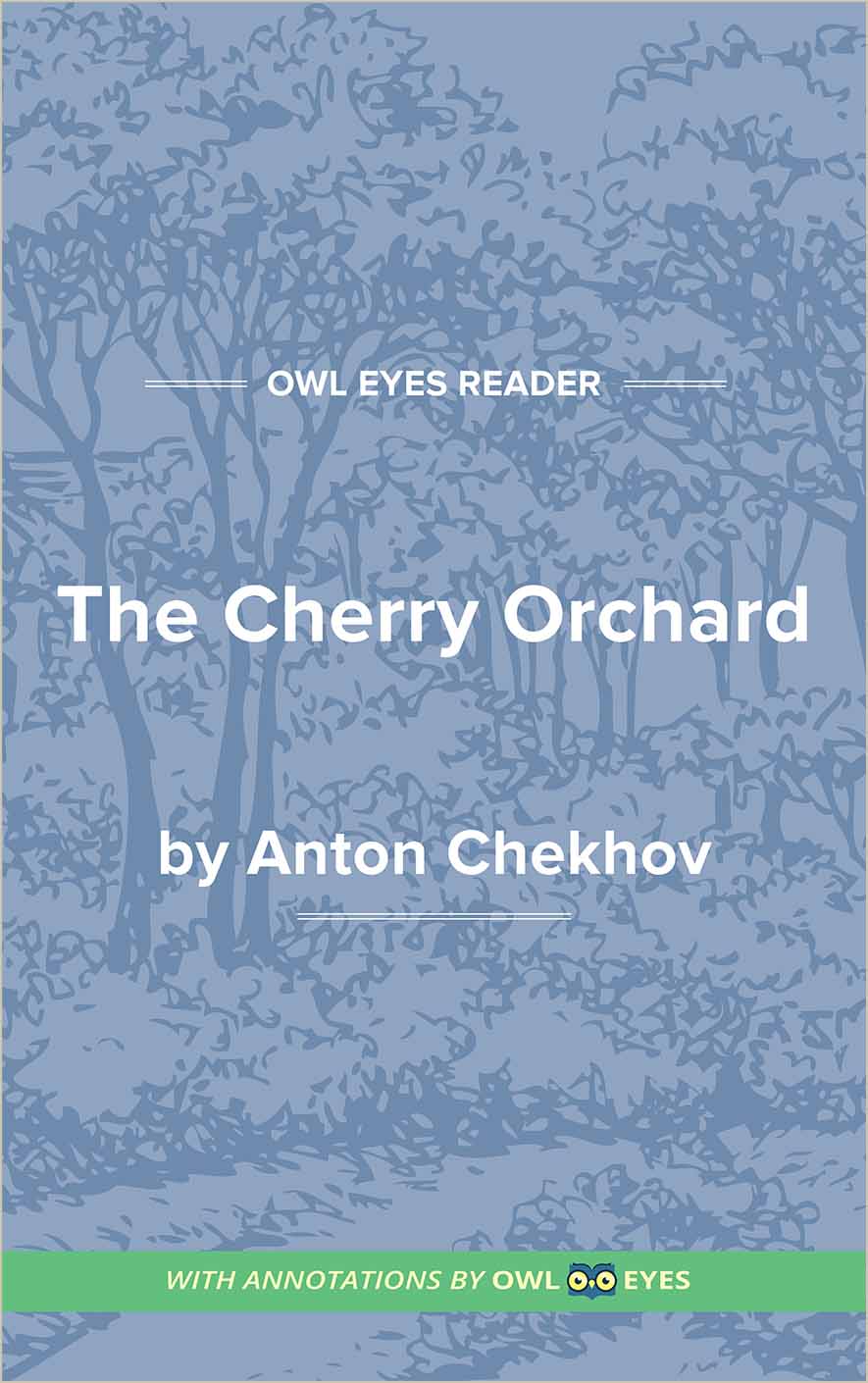Analysis Pages
Themes in The Cherry Orchard
Adapting to Change as Crucial to Survival: A central theme of Chekhov’s play is the change that comes with the passing of time. The characters of The Cherry Orchard have various reactions to social and familial change—some struggle to let go of the past while others embrace the developments of the future. Some characters do not know how to respond to change, feeling lost and without direction as the world shifts around them. It is clear that those who are adaptive are likely to succeed, whereas those who lack malleability will continue to suffer.
Memories as Refuge and Prison: Closely connected to themes of modernity and change is the idea of memory. For those struggling with the changes happening in Russia, memories become a refuge in an idyllic past. Conversely, memories haunt those that wish to forget their past and live solely in the present. On a wider scale, the play is concerned with the historical memory of Russia, especially of the oppressive serfdom and rigid class structure of the past. The servant Fiers exemplifies this “forgotten era,” symbolized when he is quite literally forgotten at the conclusion of the play.
Class Distinctions Give Way to a Middle Class: Russia’s bold class distinctions are beginning to soften as Russia moves into a new era. Some characters have been able to overcome the restrictions of their class, such as Lopakhin, the son of a serf (a position similar to a slave, but with some land rights), who has now become a wealthy merchant. Nevertheless, these class distinctions remain pronounced, especially in the separation of nobility from the “serving” class. Madame Ranevsky is appalled when Lopakhin purchases the orchard, in large part due to his humble beginnings. Similarly, Lopakhin scolds Dunyasha for trying to appear like a lady of nobility, which he sees as an overstep of her societal class. Fiers, a former serf, is perhaps the most blatant example of enduring class distinctions in Russia. While technically “freed” from serfdom, he chooses to remain in the role, performing the same duties for the estate as he did while in bondage.
Themes Examples in The Cherry Orchard:
Act I
🔒"If we can't think of anything and don't make up our minds to anything, then on August 22, both the cherry orchard and the whole estate will be up for auction...." See in text (Act I)
"I've several remedies, very many, and that really means I've none at all...." See in text (Act I)
"if I could forget my past!..." See in text (Act I)
"They've forgotten. Nobody remembers...." See in text (Act I)
"This orchard is mentioned in the "Encyclopaedic Dictionary."..." See in text (Act I)
"ove you as if you belonged to my family... and even more...." See in text (Act I)
"Let me remember now. Red into the corner! Twice into the centre!..." See in text (Act I)
"The place will be sold in August...." See in text (Act I)
"She's already sold her villa near Mentone; she's nothing left, nothing...." See in text (Act I)
"The nursery!..." See in text (Act I)
"ou should know your place...." See in text (Act I)
"I'm still a peasant down to the marrow of my bones...." See in text (Act I)
"A room which is still called the nursery..." See in text (Act I)
Act II
🔒"I'm quite sure there wasn't anything at all funny. You oughtn't to go and see plays, you ought to go and look at yourself...." See in text (Act II)
". For it's so clear that in order to begin to live in the present we must first redeem the past, and that can only be done by suffering, by strenuous, uninterrupted labour. ..." See in text (Act II)
"All Russia is our orchard. ..." See in text (Act II)
Act III
🔒"You boldly look forward, isn't it because you cannot foresee or expect anything terrible, because so far life has been hidden from your young eyes? ..." See in text (Act III)
"I can't propose to him myself, little mother...." See in text (Act III)
"A hungry dog only believes in meat..." See in text (Act III)

